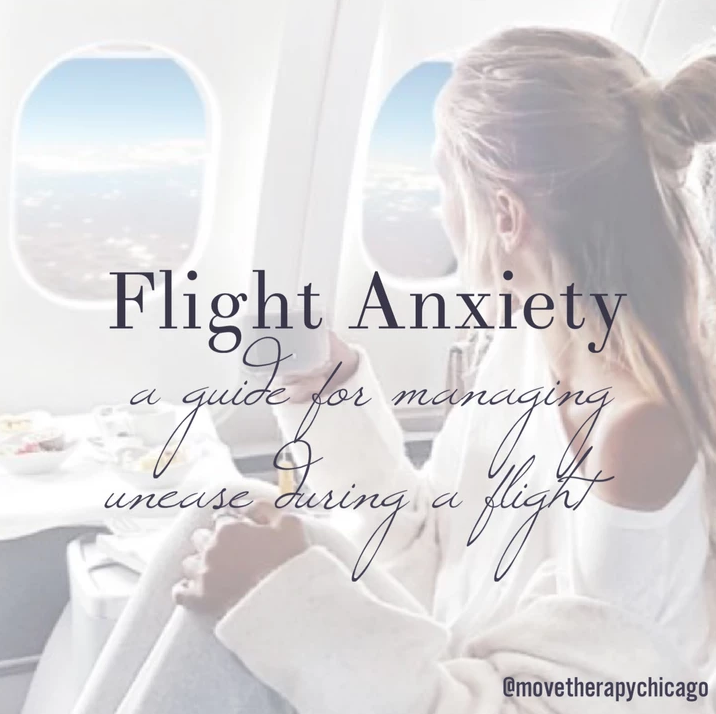“To move, to breathe, to fly, to float, to roam the roads of lands remote, to travel is to live”
…But the “to fly”part, not so much.
I love love love to travel. But I absolutely hate to fly. And while my fear of flying hasn’t stopped me from traveling (as it does for many who have a more crippling anxiety related to being on an airplane), it certainly takes a toll on the process and perhaps takes a little bit of joy out of the experience altogether.
Through a bit of trial and error (aka a lifetime of flights ranging from slightly stressful to completely agonizing), a fair amount of self study and some good old fashioned research, I have stumbled upon a few simple yet effective ways to keep the anxiety at bay during a flight. And while anxiety can look and feel differently for everyone, there are a few key strategies that can be beneficial for many including: Self talk, reframing thoughts, pre flight prep, a lot of breathing and “busy work” to name a few.
Surrender Some Control
For someone who struggles with anxiety, this one is tough. Anxiety is all about the fear of losing control or unknown outcomes. But during a flight, there are only certain things you can control-hold on to things that are under your control and breathe through what’s not. Remind yourself that the flight may not go exactly as you have planned and that you may experience some discomfort. Close your eyes, breathe through the discomfort: Inhale 1,2,3; exhale 1,2,3,4 or use a calming essential oil blend on pulse points and/or repeat an affirmation as you breathe; I am (inhale) calm (exhale) and remind yourself that the pilot and crew are highly experienced and well trained-They’ve got this.
Talk to the Airline Staff Ahead of Time
Request notification of turbulence or justification of rough air in advance. You can even ask your therapist or doctor for a note explaining your need for varying degrees of specialized care or support. Airline crew are typically very accommodating of such requests or proclamations. And while it’s not always possible to predict bumpy air (or rough air as they call it), knowing what to expect in advance as often as possible can help.
Keep Your Mind Busy
Read an interesting book, watch a movie, play a game, write a blog post (want to guess when we had the pleasure of writing this post?), do some work, work though an adult coloring book, etc. Keeping your mind busy and focusing on something that requires some creative or critical thinking can help to keep your thinking away from intense, overwhelming and racing “irrational” thoughts.
Do Some Research
Knowing that altitude and speed changes as well as landing gear and engine sounds or vibrations are normal and nothing to be alarmed about is helpful when you have flight anxiety. To go even further, researching the average flight patterns of the flight you are taking may be helpful. You can easily obtain information about altitude, climbing/descending speed or velocity and speed changes about similar flights and aircrafts to and from your destination.
Choose Your Plane Wisely
When possible, selecting a flight based on aircraft size and seat availability can also be an effective form pre flight prep for easing anxiety when it comes time to fly since larger aircrafts and seats assignments closer to the front of the plane are likely to experience less of a bumpy ride.
Pray About It
This one may not be for everyone, but for some (including myself), praying for a safe flight, for a smooth ride or praying in whatever way is meaningful to you can help to put your mind at ease.
Look at the Facts
Fewer airplanes crash than cars. You hear it all the time but when you really think about it (or actually look at that numbers), it’s pretty astounding how many flights take off and land every single day without a hitch. Keep that thought in your back pocket.
Read The Room (or cabin in this case)
Take your cues from those around you (fellow passengers, airline crew) regarding reactions to things like turbulence, illuminated seatbelt signs, altitude or speed changes and even seemingly problematic sounds. The social cues of the crew and your fellow passengers (who likely have more experience flying-though it’s quite possible to experience flight anxiety even if you fly on a regular basis) might be able to put things into perspective for you. Notice if crew members or other other passengers seem calm or un-phased by the things you are concerned about.
Take Something to Ease Anxiety
CBD oils, supplements or even a beta blocker or Xanax. Yes, Xanax. No shame in our game. Medications can really help! Always talk to your doctor or healthcare team prior to taking any medications.
Opening quote by Hans Christian Anderson. Photo credit @ohhcouture
